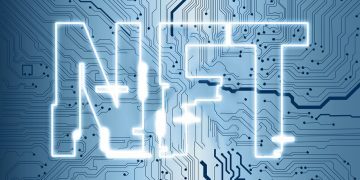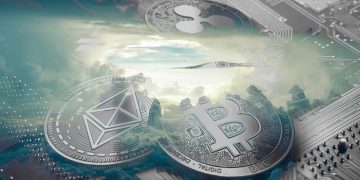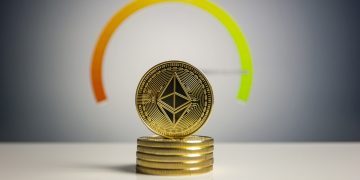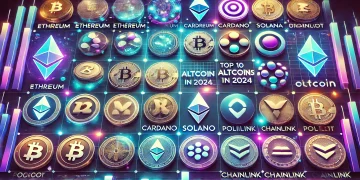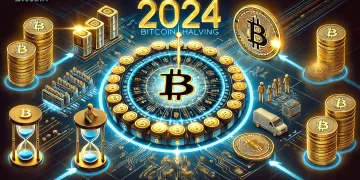The rapid evolution of blockchain technology has given rise to two groundbreaking concepts: Non-Fungible Tokens (NFTs) and Decentralized Finance (DeFi). These innovations are not just reshaping our understanding of digital ownership and finance; they’re revolutionizing the very fabric of how we interact with digital assets and financial systems. This analysis delves into the transformative potential of NFTs and DeFi, exploring their current applications, future possibilities, and the challenges they face in reshaping our digital world.
Understanding NFTs: The New Frontier of Digital Ownership
What are NFTs?
Non-Fungible Tokens (NFTs) are unique digital assets that represent ownership of a specific item or piece of content on the blockchain. Unlike cryptocurrencies such as Bitcoin or Ethereum, which are fungible (interchangeable), each NFT has distinct properties that make it unique and non-interchangeable.
Key Characteristics of NFTs:
- Uniqueness: Each NFT has a unique identifier on the blockchain.
- Indivisibility: NFTs cannot be divided into smaller units.
- Provable Scarcity: The blockchain verifies the scarcity and authenticity of NFTs.
- Programmability: NFTs can incorporate smart contracts for additional functionality.
Current Applications of NFTs
- Digital Art: Artists can tokenize their work, providing provable ownership and scarcity.
- Collectibles: Digital trading cards, virtual real estate, and other collectibles.
- Gaming Assets: In-game items that can be owned, traded, and used across different games.
- Music and Entertainment: Musicians can tokenize albums, tickets, or exclusive content.
- Identity and Certification: NFTs can represent degrees, licenses, or other credentials.
How NFTs are Reshaping Digital Ownership
- Democratizing Art and Creativity: NFTs allow creators to monetize their work directly without intermediaries.
- Redefining Intellectual Property: NFTs provide a new framework for managing and trading digital rights.
- Creating New Markets: NFTs enable the tokenization of previously illiquid assets.
- Enhancing Digital Identity: NFTs can represent digital identity in a more secure and verifiable manner.
DeFi: The Revolution in Financial Services
What is DeFi?
Decentralized Finance (DeFi) refers to a system of financial applications built on blockchain networks, primarily Ethereum, that aim to recreate and improve upon traditional financial systems without centralized intermediaries.
Key Principles of DeFi:
- Decentralization: No central authority controls the system.
- Transparency: All transactions and smart contracts are visible on the blockchain.
- Interoperability: DeFi protocols can interact with each other, creating complex financial products.
- Permissionless: Anyone with an internet connection can access DeFi services.
Current Applications of DeFi
- Lending and Borrowing: Platforms like Aave and Compound allow users to lend and borrow cryptocurrencies.
- Decentralized Exchanges (DEXs): Uniswap and SushiSwap enable token swaps without centralized intermediaries.
- Yield Farming: Users can earn rewards by providing liquidity to various protocols.
- Stablecoins: Cryptocurrencies pegged to fiat currencies, like DAI, provide stability in the volatile crypto market.
- Insurance: Protocols like Nexus Mutual offer decentralized insurance against smart contract failures.
How DeFi is Reshaping Finance
- Increasing Financial Inclusion: DeFi provides access to financial services for the unbanked and underbanked populations.
- Reducing Costs: By eliminating intermediaries, DeFi can lower transaction costs and increase efficiency.
- Enhancing Transparency: All transactions and smart contracts are visible on the blockchain, reducing the potential for fraud.
- Creating New Financial Instruments: DeFi enables the creation of complex financial products that were previously impossible or impractical.
The Convergence of NFTs and DeFi
The intersection of NFTs and DeFi is creating exciting new possibilities in the world of digital finance and ownership.
Key Areas of Convergence:
- NFT-Collateralized Loans: Using NFTs as collateral for loans in DeFi protocols.
- Fractionalized NFT Ownership: Dividing ownership of high-value NFTs among multiple investors.
- NFT-based Yield Farming: Staking NFTs to earn yields in DeFi protocols.
- Liquidity Provision for NFTs: Creating liquid markets for NFTs through DeFi mechanisms.
Potential Future Applications:
- Real Estate Tokenization: Representing property ownership as NFTs and enabling DeFi-based mortgages.
- Intellectual Property Rights Management: Using NFTs to manage and trade IP rights with DeFi-based royalty systems.
- Decentralized Autonomous Organizations (DAOs) for Collective Ownership: Using NFTs for governance in DAOs that manage shared assets.
- NFT-based Identity and Credit Scoring: Leveraging NFT ownership history for decentralized credit scoring in DeFi lending.
Challenges and Considerations
While NFTs and DeFi offer exciting possibilities, they also face significant challenges:
Technical Challenges:
- Scalability: Current blockchain networks may struggle with increased transaction volumes.
- Interoperability: Ensuring seamless interaction between different blockchain networks and protocols.
- User Experience: Simplifying complex processes for mainstream adoption.
Regulatory Challenges:
- Legal Status: Unclear regulatory frameworks for NFTs and DeFi in many jurisdictions.
- Securities Laws: Potential classification of certain tokens or DeFi products as securities.
- Consumer Protection: Ensuring adequate safeguards for users in a decentralized ecosystem.
Security Concerns:
- Smart Contract Vulnerabilities: Potential exploits in smart contract code.
- Oracle Attacks: Manipulating external data sources that DeFi protocols rely on.
- Rug Pulls and Scams: Malicious actors exploiting the nascent and often unregulated space.
Environmental Considerations:
- Energy Consumption: Concerns about the environmental impact of proof-of-work blockchains.
- Sustainability: Developing more energy-efficient consensus mechanisms and infrastructure.
The Road Ahead: Potential Impacts and Future Developments
Reshaping Traditional Industries:
- Art and Collectibles: NFTs are already transforming how we value and trade digital art and collectibles.
- Gaming: Play-to-earn models and true ownership of in-game assets could revolutionize the gaming industry.
- Real Estate: Tokenization of property could increase liquidity and accessibility in real estate markets.
- Financial Services: DeFi could force traditional financial institutions to adapt or risk obsolescence.
Emerging Trends:
- Metaverse Integration: NFTs as the foundation for digital identity and ownership in virtual worlds.
- Cross-Chain Solutions: Development of interoperable protocols to connect different blockchain networks.
- Institutional Adoption: Increasing interest from traditional finance in both NFTs and DeFi.
- Regulatory Frameworks: Evolution of legal and regulatory approaches to accommodate these new technologies.
Potential Societal Impacts:
- Wealth Creation and Distribution: New opportunities for wealth generation, but also potential for increased wealth inequality.
- Redefined Concepts of Ownership: Blurring lines between physical and digital ownership.
- Financial Empowerment: Greater access to financial services and investment opportunities.
- Cultural Shifts: Changes in how we perceive and value digital goods and services.
Conclusion
NFTs and DeFi are at the forefront of a digital revolution, reshaping our understanding of ownership, value, and financial systems. As these technologies continue to evolve and converge, they have the potential to transform numerous industries and create entirely new markets and economies.
However, the road ahead is not without challenges. Technical hurdles, regulatory uncertainties, and security concerns must be addressed for these technologies to reach their full potential. Moreover, as with any transformative technology, the societal implications of widespread adoption must be carefully considered.
As we move forward, it will be crucial for developers, policymakers, and users to work together to harness the positive potential of NFTs and DeFi while mitigating risks and ensuring equitable access. The future of digital ownership and finance is being written now, and these technologies are playing a pivotal role in shaping that future.
Frequently Asked Questions (FAQs)
- Q: What exactly is an NFT, and how does it differ from cryptocurrencies like Bitcoin? A: An NFT (Non-Fungible Token) is a unique digital asset that represents ownership of a specific item or piece of content on the blockchain. Unlike cryptocurrencies such as Bitcoin, which are fungible (interchangeable), each NFT has distinct properties that make it unique and non-interchangeable.
- Q: How are NFTs changing the art world? A: NFTs are revolutionizing the art world by allowing digital artists to tokenize their work, providing provable ownership and scarcity. This enables artists to monetize digital art in ways that were previously impossible and opens up new markets for collectors.
- Q: What is DeFi, and how does it differ from traditional finance? A: DeFi (Decentralized Finance) refers to financial applications built on blockchain networks that aim to recreate and improve upon traditional financial systems without centralized intermediaries. Unlike traditional finance, DeFi is open, transparent, and accessible to anyone with an internet connection.
- Q: How can DeFi increase financial inclusion? A: DeFi can increase financial inclusion by providing access to financial services for unbanked and underbanked populations. Anyone with an internet connection can access DeFi services, regardless of their location or financial status.
- Q: What are some potential use cases for the convergence of NFTs and DeFi? A: Some potential use cases include NFT-collateralized loans, fractionalized NFT ownership, NFT-based yield farming, and creating liquid markets for NFTs through DeFi mechanisms.
- Q: What are the main challenges facing NFTs and DeFi? A: Key challenges include scalability issues, regulatory uncertainties, security concerns (such as smart contract vulnerabilities), and environmental considerations related to energy consumption.
- Q: How might NFTs and DeFi impact traditional industries like real estate? A: NFTs and DeFi could revolutionize real estate by enabling property tokenization, increasing liquidity in real estate markets, and facilitating DeFi-based mortgages and property investments.
- Q: What is the “metaverse,” and how do NFTs play a role in it? A: The metaverse refers to a collective virtual shared space, created by the convergence of virtually enhanced physical reality and physically persistent virtual space. NFTs can serve as the foundation for digital identity and ownership within these virtual worlds.
- Q: Are NFTs and DeFi environmentally sustainable? A: There are concerns about the energy consumption of some blockchain networks, particularly those using proof-of-work consensus mechanisms. However, many projects are working on more energy-efficient solutions, such as proof-of-stake networks.
- Q: How can I participate in the NFT or DeFi ecosystem? A: You can participate by purchasing or creating NFTs on various platforms, or by using DeFi applications for activities like lending, borrowing, or trading cryptocurrencies. However, it’s important to do thorough research and understand the risks involved before participating.
- Q: What are smart contracts, and why are they important for NFTs and DeFi? A: Smart contracts are self-executing contracts with the terms of the agreement directly written into code. They are crucial for NFTs and DeFi as they enable automated, trustless transactions and complex financial operations without intermediaries.
- Q: How might NFTs and DeFi affect traditional banking and financial institutions? A: NFTs and DeFi could potentially disrupt traditional banking by offering more efficient, transparent, and accessible financial services. This could force traditional institutions to adapt their business models or risk becoming obsolete in certain areas.
- Q: What are the risks associated with investing in NFTs or participating in DeFi? A: Risks include market volatility, potential smart contract vulnerabilities, regulatory uncertainties, and the possibility of scams or fraud. It’s crucial to conduct thorough research and only invest what you can afford to lose.
- Q: How might governments and regulators approach NFTs and DeFi? A: Regulatory approaches are still evolving. Some jurisdictions are working on creating specific frameworks for crypto assets, while others are attempting to apply existing regulations. The challenge for regulators is to protect consumers and maintain financial stability without stifling innovation.
- Q: What skills might be valuable for someone looking to work in the NFT or DeFi space? A: Valuable skills include blockchain development, smart contract programming, financial engineering, UI/UX design for decentralized applications, and a strong understanding of cryptography and distributed systems. Knowledge of regulatory compliance and digital art creation can also be beneficial.
Remember, while NFTs and DeFi offer exciting possibilities, they are still evolving technologies with associated risks. Always conduct thorough research and consider seeking advice from financial and legal professionals before engaging with these ecosystems.

